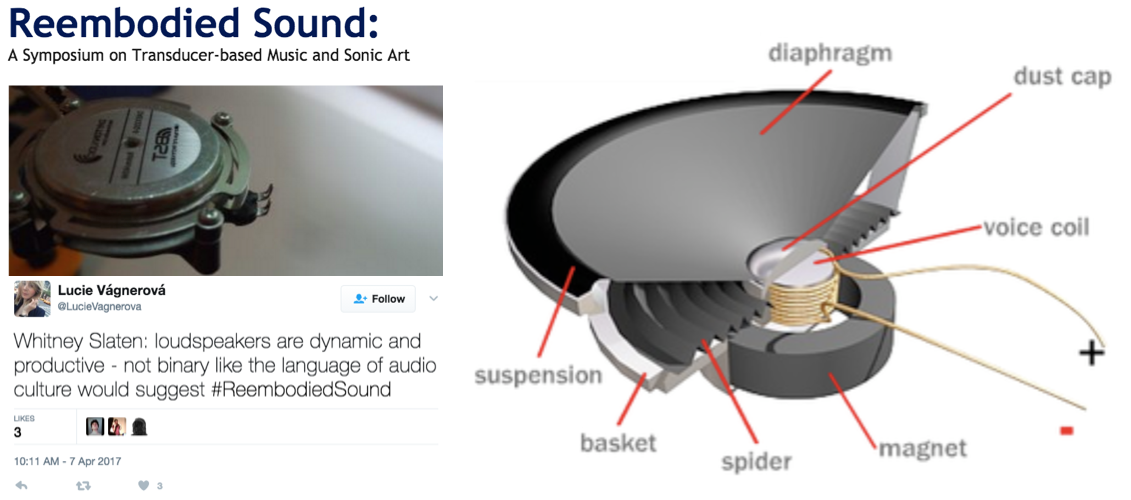On April 7th, I presented a research paper entitled “On the Poststructuralism of Loudspeakers: Transduction and the Digital Humanities” at Reembodied Sound: A Symposium on Transducer-Based Music and Sonic Art at Columbia University.
The following is the abstract for the paper:
On the Poststructuralism of Loudspeakers: Transduction and the Digital Humanities
How do transducers analyze power? How do transducers critique digital audio? How do loudspeakers construct and deconstruct musical culture? This paper points critical attention to the perpetuation of modern ideology in media technologies and the complications of such ideologies through listening technologies and listening processes. My approach responds to two emergent scholarly movements: 1) digital humanities, with the need to specify technological processes of digital mediation, and 2) discourses about object oriented ontologies across the social sciences and the humanities. Addressing digital humanities and object oriented ontology, I consider the loudspeaker as a mechanism that functions in ways similar to poststructuralist research. Loudspeaker movements continually mediate modern technological structures of coded binary opposites in ways that resemble social scientific and humanistic scholars’ efforts to reveal the mediations of culture in the wake of the structuralist era. Structuralism and poststructuralism were two opposing paradigms of social and cultural research in the late 20th century. Similar to digital systems of the present, scholarly approaches to studying cultural mediation ruptured ideological constructions of binary opposition. After reviewing the basic tenants of structuralism, poststructuralism, as well as pulse code modulation systems associated to digital audio, poweramplifier design, and the transduction of loudspeaker drivers, I compare the mediality of loudspeaker motion to the post-binary opposition cultural mediation based work of contemporary social scientists and humanists. This work draws from current scholarship in sound studies, the history of science, anthropology, and discourses of ontology.
